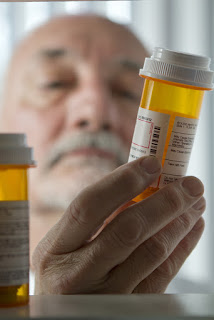Prescription drug diversion is a common problem in the United States, that is when a friend or family member gives you a drug that your doctor didn’t prescribe for you. People divert all kinds of prescription drugs, but narcotics are worthy of concern. Study after study shows that a significant number of Americans have no problem sharing their drugs with someone in their inner circle. The behavior occurs regularly despite the fact that the country is in the midst of an epidemic associated with such drugs.
If you have opioid painkillers for a legitimate health problem, we cannot stress to you enough the dangers of sharing your prescriptions with friends and family members. You might find this hard to accomplish at times; no one wants to see someone close to them suffer needlessly. However, you are not a doctor; even when physicians prescribe these drugs, the risk of patient addiction is real. You have no way of knowing what diverting your medication will lead to, whether it be opioid use disorder or worse—overdose.
Certain situations warrant pain medication; if your loved one is experiencing severe pain they should consult a physician, not your medicine cabinet. Prescription narcotics should always be kept under lock and key, even if you live alone. Raiding medicine chests is a common occurrence, the result of millions and millions of pills being prescribed each year. If you don’t live alone, all the more reason to lock up your medicines; don’t let your pain conditions play a role in another person developing an opioid use disorder.
Painkillers Run In The Family
New research shows that merely having opioid painkillers in the household can lead to another family member getting their prescription from a doctor, Reuters reports. Researchers from the Johns Hopkins University Bloomberg School of Public Health in Baltimore analyzed data on about 12.6 million people living in a home with someone prescribed opioids. The findings indicate that 11.83 percent of people living in a household with opiates present, went out and got their painkillers within a year’s time.
Dr. Julie Gaither, a pediatrics researcher at Yale School of Medicine, points out that even when a family member uses opioids as prescribed, others in the house are at a higher risk of misusing the deadly drugs, according to the article. Wherever opioids exist, prescribed or not, others are at risk.
“Opioids are now available in millions of American homes, which means that everyday individuals vulnerable to addiction and overdose – such as children, teens, the elderly, and those with a history of substance abuse – are routinely exposed to medications that are highly addictive and potentially deadly,” said Gaither.
The study appears in JAMA Internal Medicine.
Opioid Use Disorder Treatment
Once opioid addiction presents itself to an individual, its vital that they seek help immediately. The more prolonged abuse persists, the higher the risk of overdose. Those who put off treatment may never get the chance to experience the miracles of addiction recovery. If you or a loved one is battling opioid use disorder, please contact Hope By The Sea as soon as possible. We can help with detox, treat the addiction and any co-occurring mental health disorder, and teach you how to lead a productive and fulfilling life in recovery.


